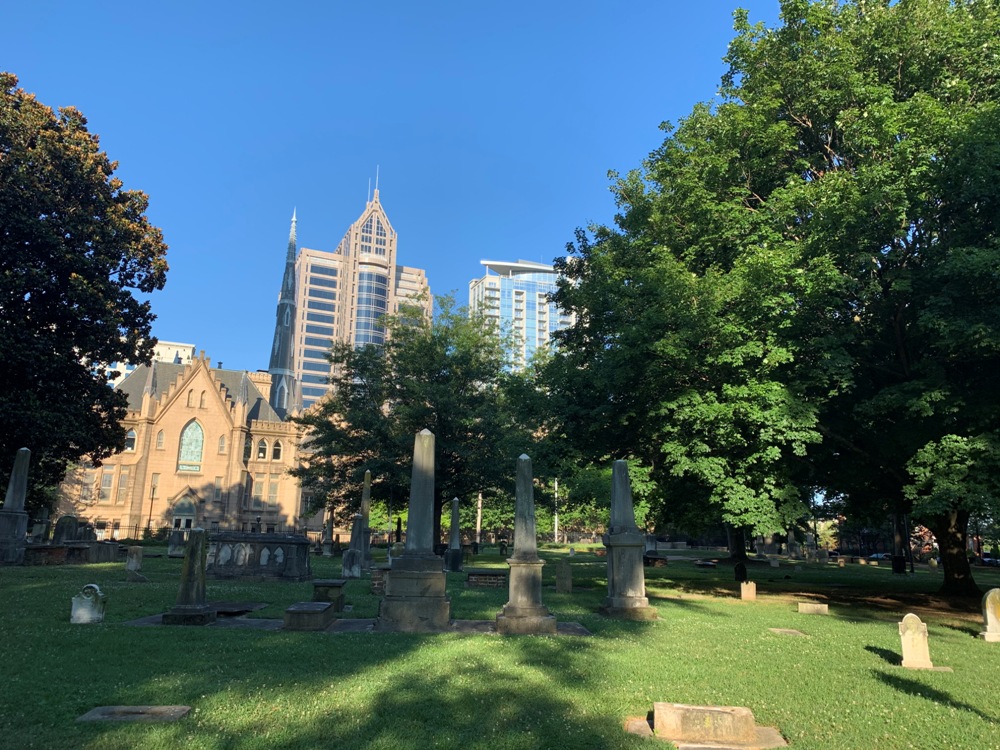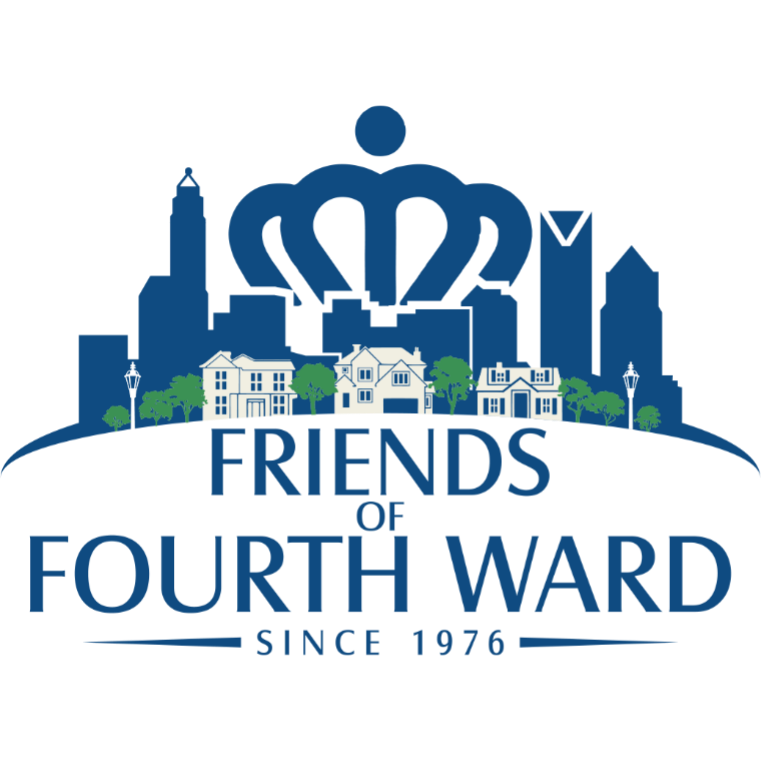The Historic Cemeteries
Elmwood and Pinewood Cemeteries
Encompassing somewhere 75 acres Elmwood, Pinewood, and Potter’s Field Cemeteries have all now been combined into one cemetery.
Originally opened in 1853 the cemetery holds the final resting places of famous and not famous alike. More than 150 years of Charlotte and Mecklenburg county history are laid to rest here. Among the 45,000 plus graves are those for a governor, several generals, a circus animal trainer, firemen, an actor, Woodmen of the World, and veterans of wars from the War of Independence on through the Gulf War.
A site of one of the many civil rights controversies, the fence separating all-white Elmwood Cemetery from all black Pinewood Cemetery was removed in January 1969. With the removal of the fence between Pinewood and Elmwood, the Elmwood Cemetery complex became, essentially, one burial ground. Roads now connect the two cemeteries – although the Ninth Street entrance is still open, visitors can walk or drive through either entrance and access Elmwood and Pinewood. With over 150 years of funerary art and cultural, economic, and social history in its shady, lush acreage, the Elmwood Cemetery remains a significant part of Charlotte and Mecklenburg County. Click here to view the new Settlers, Elmwood, Pinewood Cemetery website.

Settler’s Cemetery
Setter’s Cemetery is a city-owned cemetery located at 200 West 5th Street, right in the middle of Charlotte, North Carolina. It was the first municipal burial ground in Charlotte and contains the graves of many early settlers, with grave sites dating from 1776 through 1884. Prominent people buried in Old Settlers’ include Nathaniel Alexander, Greene Washington Caldwell, Revolutionary War hero Major General George Graham, and Thomas Polk, Charlotte founding father and great-uncle of United States President James K. Polk. Also contained in the cemetery is an obelisk honoring North Carolina planter and politician William Davidson.
